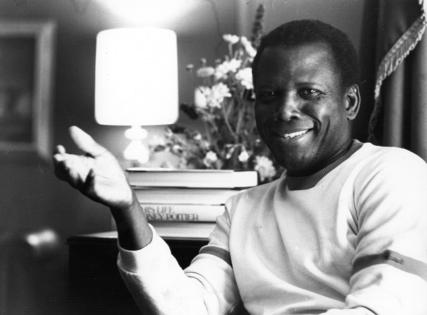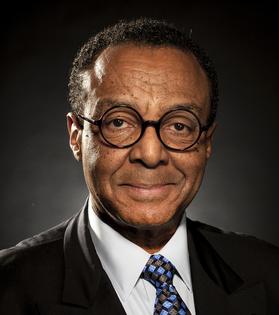Sidney Poitier Left Unifying Messages for Our Divided Times
How jarring, yet poignantly appropriate it seems for Sidney Poitier to die at age 94 on the first anniversary of the Jan. 6 mob attack on the Capitol.
With his gifted acting, engaging personality and social activism, he was “the Martin Luther King, Jr., of the movies,” as one Vanity Fair writer described him, helping ease the cultural anxieties that accompanied the hard-won gains of the civil rights era.
He was a role model for a lot of young Black Americans like I was at the time. Even when his roles seemed sentimental, as in his pioneering Oscar-winning performance in the 1963 “Lilies of the Field,” he was never buffoonish. He always seemed to have a point with his performances. He refused to let the few things about us that look different get in the way of the many things we should be sharing in common.
For that, I fondly appreciate the power of his 1958 triumph, “The Defiant Ones,” a racial fable that earned him an Oscar nomination as a Black convict who escapes captivity, chained to another fugitive, who happens to be a white racist played by Tony Curtis.
Without giving away too much, their life on the lam turns into a riveting odyssey — from mutual anger, fear and suspicions to a gradual revelation. In the words widely attributed to Benjamin Franklin at the signing of the Declaration of Independence: “We must all hang together or most assuredly we shall all hang separately.”
The movie effectively leaves us with a lasting question we would hear asked another way by Rodney King amid the 1992 Los Angeles riot: “Can we all get along?”
I seriously pondered that question again during the candlelight vigil at the Capitol on the Jan. 6 anniversary. When lawmakers from both parties similarly assembled in 2001, they broke into an unrehearsed but robust rendition of “God Bless America.”
This time Republicans were not to be seen at the Capitol, except for Rep. Liz Cheney of Wyoming with her father, former Vice President Dick Cheney, for the House’s moment of silence. Illinois Republican Rep. Adam Kinzinger tweeted that he, too, would have come but had to stay home with his wife to await their firstborn.
No wonder so many scholars and commentators wonder if we’re not slipping and sliding into another civil war.
Even those who don’t go that far find rising, systematic partisan attacks on voting and voting rights by Trump-inspired Republicans to be worrisome. So are the Republican allegations of widespread voter fraud, despite a profound lack of evidence.
In that light, University of Chicago professor Richard Pape, founder of the Chicago Project on Security and Threats, has been analyzing court documents and background files on 725 Jan. 6 arrestees and found a significant surprise:
More than income, education, hometowns or most other commonly cited drivers of characteristics, he said, the counties that sent the most insurrectionists tended to also be counties that have been losing the most white population.
“That dovetails with this right-wing conspiracy theory that used to be part of the fringe called the ‘great replacement,’” he said on CBS’ “Face the Nation.” That’s a popular theory among recently rising far-right groups in Europe and in the far-right reaches of conservative media here.
It suspects a conspiracy by elites to replace America’s white population with immigrants and other people of color. There’s no plausible evidence of that but, as with Q-Anon, vaccine hesitancy and Barack Obama’s birth certificate, some people are determined to avoid letting facts get in the way of their suspicions.
Against that backdrop, the death of Poitier strikes me as tragically symbolic. He was a walking example of American diversity and ambitions. Black and an immigrant, born unexpectedly in Miami to Bahamian parents during a business trip, he had dual citizenship. He went on to join the U.S. Army at age 15 during the Vietnam era after reportedly lying about his age.
A generous supporter of the civil rights movement, his honors included being awarded the Presidential Medal of Freedom in 2009 by President Barack Obama, this country’s highest civilian honor.
And through it all, he kept his dignity and his cool. “I’ve learned that I must find positive outlets for anger or it will destroy me,” he wrote in his 2000 memoir, “The Measure of a Man: A Spiritual Autobiography.”
That’s some more good advice for our troubled times. Insurrectionists, take note.
========
(E-mail Clarence Page at cpage@chicagotribune.com.)
©2022 Clarence Page. Distributed by Tribune Content Agency, LLC.
(c) 2022 CLARENCE PAGE DISTRIBUTED BY TRIBUNE MEDIA SERVICES, INC.










